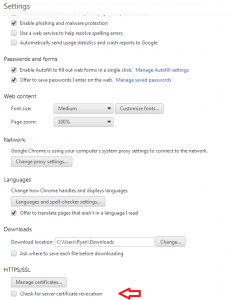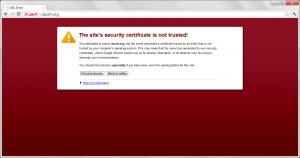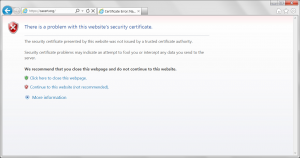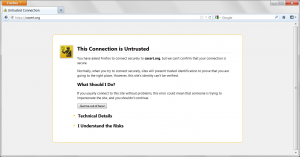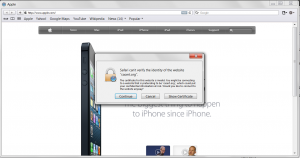NOTE: Google has since adopted a more gradual plan for migration which will addresses the potential false sense of urgency the prior plan represented. Personally I think the new plan is a good one. The upsides in this post are still accurate and it is my hope people switch to SHA256 based certificates as quickly as possible.
The Internet is about to embark on another Heartbleed-esq certificate migration. This time there is no immediate danger (which was certainly not the case with Heartbleed) and there is a proposed twelve weeks to plan and respond.
During this time (unless that plan changes) a large majority of the SSL secured Internet will need to swap out their SSL certificates or the users of these sites will see a little scarier user experience. To be fair some of these certificates will be expiring regardless and need to be replaced anyway but this still represents a large number of additional sites that will need to replace certificates sooner than they had planned.
That said there are upsides, for example given how many of the top sites now use SSL the users of these sites will need to move to modern browsers not dependent on platform crypto or update to a newer version of Windows in the process gaining access to modern web technologies and security fixes.
Another benefit is that CAs that are not active participant in the CABFORUM and who do not follow the root program requirements closely will be sure to stop their use of SHA1 based signatures as soon as they see the user experience impacted.
The same thing will be true of device companies and enterprises who do not as of today have the option to participate in the CABFORUM and even if they did are frankly unlikely to. That is when they see their support calls go up they will change their products and/or processes so that such certificates are not used.
The net of which is by the end of 2017 we will most likely see the complete end-of-life of SHA1 as part of signature suites and we may see an above average increase in modern browser adoption.
Ryan
